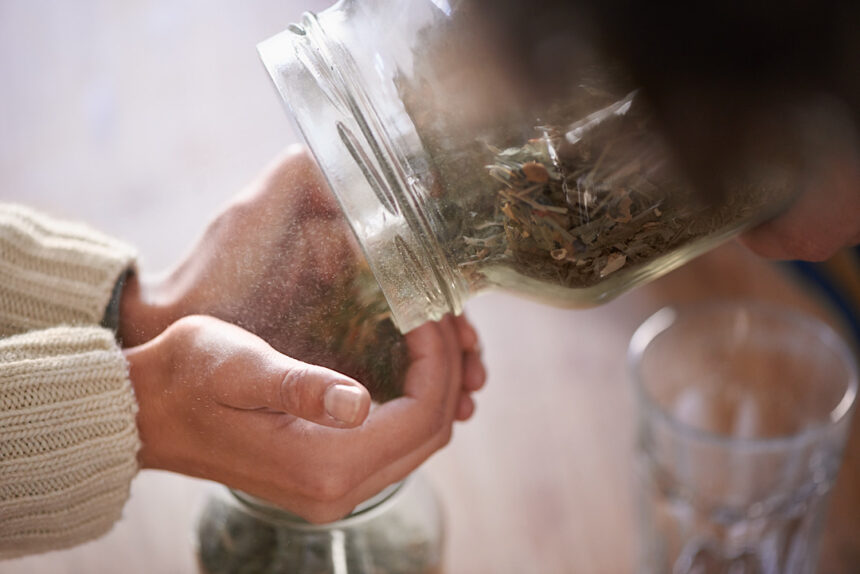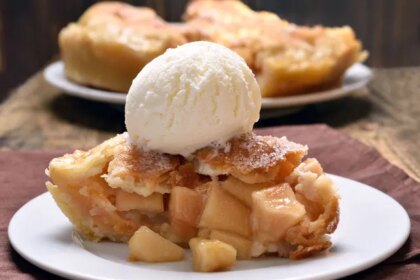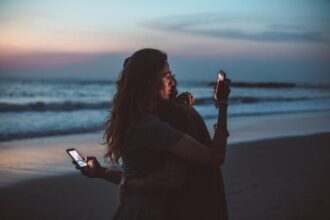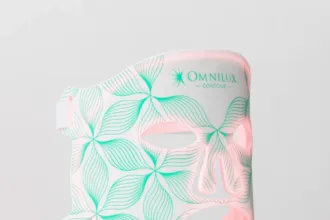When Roe v. Wade, the landmark Supreme Court ruling that safeguarded abortion access in the United States for nearly 50 years, was overturned last June, herbalist Sarah Corbett of Rowan + Sage wasn’t surprised. “The writing was on the wall for years, if not decades,” she says, citing Black and indigenous activists and healers who sounded alarms while Roe was still the law of the land.
What did shock Corbett was that, in the wake of Roe’s reversal, she and virtually every herbalist she knows received a deluge of direct messages asking them to share information about herbal abortions on social media. It’s a “big ethical battleground” in the herbalism community, she explains. “I can’t speak for everyone, but most herbalists hold an ideal of doing no harm. And talking about this on social media, spaces not known for their ability to hold nuance, could legitimately cause harm.”
It didn’t help that TikToks on the topic were already amassing hundreds of thousands of views. (For the record, content about herbal abortions violates the platform’s community guidelines.) This happened to Victoria Fillmore, an Appalachian community herbalist with Cedar Hill Homestead, too. “I thought it had died down,” she says, “but just last week, I received a few classic ‘how much mugwort for herbal abortion?’ and ‘can I buy herbal abortions?’ DMs, often from folks who don’t even follow or know my work.”
What makes social media an unsafe space to talk about herbal abortion
For people with uteruses, plants have been used for everything from supporting hormone balance, to alleviating PMS symptoms, to preparing the body for labor and delivery, to preventing the implementation of a fertilized embryo, to supporting your system during menopause.
Throughout history, certain herbs have also been used to terminate pregnancies. There is very little scientific research on this topic, ostensibly because it would endanger study participants, but it is well-known by herbalists and historians alike.
As Corbett shared on her Instagram feed, there are several reasons why social media isn’t the right space for having a conversation about herbal abortion. Neither she, nor Fillmore will discuss the topic on their channels for numerous reasons, including serious ethical and safety concerns.
Herbalists aren’t licensed health professionals
There is no formal licensing system in the U.S. for herbalists, which means they have no legal protection beyond the First Amendment.
Herbalists aren’t licensed medical practitioners, either. “It’s part of the limitations of being an herbalist,” Corbett explains. “I can say, ‘Historically, we have worked with herbs in this way,’ or educate in broad strokes.” But on highly surveilled platforms like Instagram, the stakes of sharing this knowledge are much higher than, say, a private workshop setting. It can potentially endanger herbalists and the practice at large.
Speaking about herbal abortions on social could be incriminating in states where abortions aren’t legal
Corbett lives in Georgia, where abortions are now illegal after six weeks of pregnancy with few exceptions. Fillmore is based in Tennessee, which criminalizes abortions at all stages of pregnancy with no explicit exemptions.
“I don’t want to criticize anyone who’s out there talking about herbal termination or herbs for reproductive care,” Corbett says, “but for me personally, there is too much risk in discussing those concepts online.”
Herbalists can’t offer adequate care to people through social media
Additionally, it is impossible (and totally irresponsible) for herbalists to make universal recommendations. “It goes against all ethics to simply hand out potentially dangerous information to people without walking through their medical history and every possibility and risk associated with their decision,” Fillmore explains. There are just too many factors at play in any given case.
Many of the plants associated with herbal abortions can have adverse health effects in the wrong dosages. Even when dosed and administered correctly, they can cause an intense amount of stress on the body.
Corbett sometimes encounters people who believe plants are inherently safer than pharmaceutical interventions. Often, that isn’t the case. When it comes to abortions and contraception, pharmaceuticals are “more reliable, efficacious, and standardized than herbs are,” she says. “That doesn’t mean people haven’t been using herbs successfully for those things. But there is no herb that is 100-percent safe in every circumstance. It’s a very nuanced topic, and there’s no way to do that justice on social media.”
How herbalists prefer to talk about herbs for reproductive care
If you really want to learn about herbalism and reproductive healthcare, try connecting with established herbalists in your area, ideally IRL. There are practitioners in most major cities, Corbett says, and you can usually find them on social media. Nobody owes you their time or expertise, so approach the professionals with humility and respect, not demands.
Fillmore also recommends researching preventative reproductive care options, such as cycle tracking. “It’s a very real concern for folks living in my area,” she says, “and it’s crucial that we learn about this before we need it, even if we think we won’t.”
It behooves all of us to remember the overarching political context: Reproductive healthcare in the U.S. is under attack. With states able to dictate abortion access, one-third of Americans who can get pregnant now have to travel more than an hour away to reach their nearest abortion provider.
“I don’t think the answer to the hostile legislation we’re facing is, Let’s teach everyone about herbal abortions,” adds Corbett. “I think the answer is more, Let’s be aware of this knowledge and keep it alive, invest in community care and connections, and keep working to ensure that everyone has access to safe, full-spectrum reproductive healthcare everywhere.”









